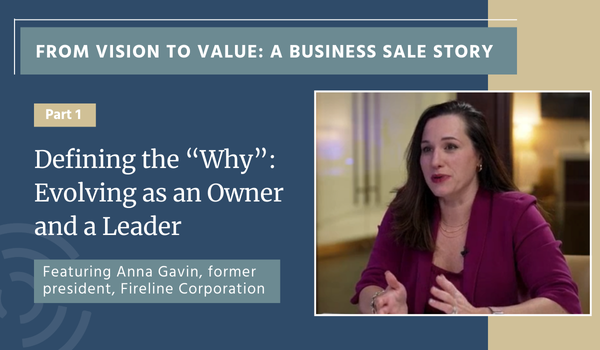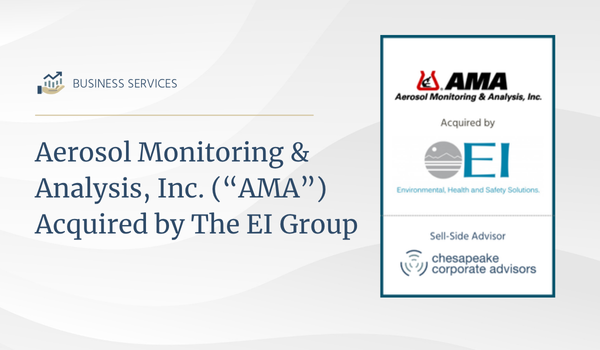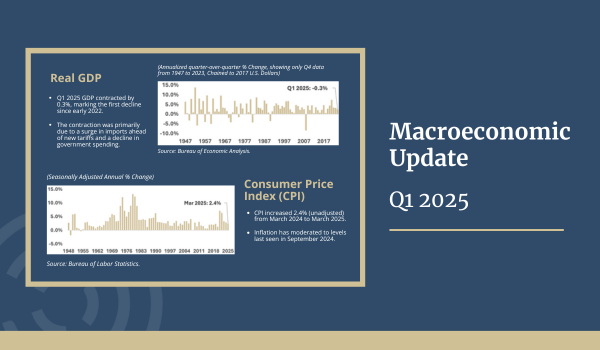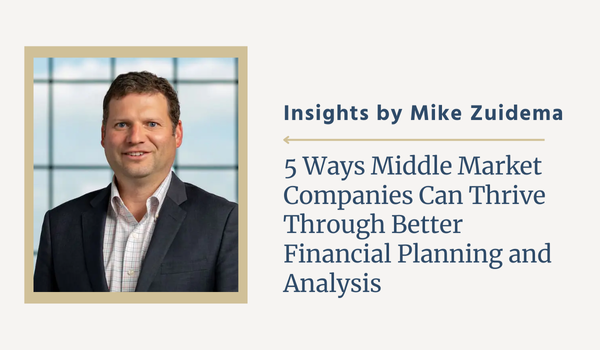When you decide to sell your business, it is likely you will generate interest from various types of buyers. Since private equity (PE) investors are very active in the middle market, there is a good chance that one or more PE groups may make an offer on your company.
The more you understand about the different deal structures a PE group might present and the potential outcomes post-transaction, the better equipped you will be to evaluate these offers. Several questions can help you carefully consider a PE deal and ensure it aligns with your objectives.
How Do You Envision Life Post-Transaction?
Before you begin the sale process, it is critical to think about what an ideal outcome looks like for you and the company. What happens after the deal closes depends on the PE group’s investment strategy as well as your personal and professional goals.
PE firms invest in a business in one of two ways: as a platform company (which serves as a foundation upon which to add other businesses) or as an add-on to an existing platform company. Buyers will ultimately determine which path is more lucrative and aligns best with its strategy, but as a seller you should consider how each route will impact your transaction goals and plans after close.
Since a platform company typically represents the firm’s initial investment in an industry, the investors will likely rely heavily on the current leadership team to operate the business. That means you may need to stay on in a leadership role until at least the end of an agreed upon transitional period, or until the PE group sells the business again. The timing of the second sale will depend on when the platform company achieves the desired growth targets and investment returns, but it typically averages five years.
If, instead, the PE group believes your business is better suited as an add-on to an existing platform, you will be less involved in the company’s operations and will likely not be required to stay with the Company as long. Business owners who are eager to retire or move on to other professional pursuits often find this deal structure more appealing.
(For a more detailed look at what it means to become a PE group’s platform company vs. an add-on to an existing platform, read our latest blog on this topic.)
What is the PE Group’s Growth Strategy?
Most sellers have a vision for how the buyer will operate the company post-transaction. In fact, some of those expectations might have influenced your decision to sell. Perhaps you were eager to expand into new geographic markets, or you wanted to expand your product or service offerings, but the business lacked the capital to execute those strategies. Now, you envision the buyer infusing the capital to see your plans through fruition. However, the PE group could have a different growth strategy in mind.
To ensure that you and the buyer are satisfied with the partnership throughout your time working together, make sure you are aligned with the PE group’s plans post-closing. While this is important for any transaction, it is especially critical if you plan to roll over a significant amount of equity (as described below) with the potential to obtain a larger payout when the investor eventually sells the business.
What is the Deal’s Financial Structure?
Whether your business becomes a platform or an add-on, most PE groups expect you to reinvest a portion of your proceeds back into equity of the new company. Ensuring you maintain a stake in the company’s success creates a strong incentive for you to stay on through the transition period and help grow the business. The more equity you roll over, the greater the upside opportunity when the PE group sells the business. This is known as the “second bite of the apple.” However, rolling over more equity means less liquidity in the short term and higher risk, since the equity that you roll over into the new company could lose value.
The amount of debt used to finance the transaction is another consideration. Since debt introduces financial risk, too much leverage can be problematic following a transaction for two reasons:
- Most business owners want the company to remain in good financial health.
- If you rolled over equity and hope to get a ”second bite of the apple,” excessive debt from a transaction can inhibit the company’s ability to grow and prosper.
Is This a Good Cultural Fit?
Let’s say you receive identical offers from two PE firms with the same post-transaction strategy. One way to differentiate them is to determine which buyer will be the better cultural fit.
During the sale process you will engage with buyers and get to know their leadership—the individuals who will own a significant stake in your business and influence its future. Take this time to assess whether your values align and your operating styles mesh. If you can speak with other companies the PE group has acquired, use these references to assess what it will be like to work together. Speaking with references is also a good way to gauge whether the PE group has a track record of accommodating a seller’s specific requests. For instance, you might want assurance that certain long-term employees will have job protection for a period of time or that an existing bonus plan will stay in place for the first year. Though these requests are rarely deal breakers, it is helpful to know if the PE group is likely to honor them.
The team at Chesapeake Corporate Advisors understands that selling your business is one of the most important decisions you will ever make. Our experienced investment bankers provide expert guidance throughout this complex process to help you achieve the ideal outcome for your personal and professional goals.
Contact us to learn how we can prepare your business for the sale process and achieve the optimal deal outcome.
About Chesapeake Corporate Advisors
Chesapeake Corporate Advisors is a boutique investment banking and corporate advisory firm providing strategic advisory services (value creation) and investment banking services (value realization) to companies with revenues between $10 million and $200 million.





